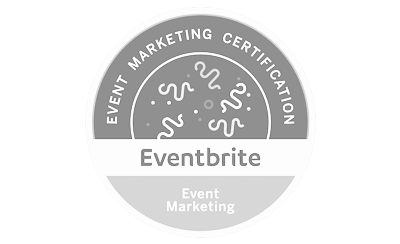
This week, on May 21, 2014, I had the pleasure of speaking to a packed house at the Kentucky Justice Association’s ‘Marketing Your Practice’ CLE. The event organizers asked me to come up with “something different” to talk about. I wanted to prepare an article, paper, or presentation on the utilization of the CRM process within a law firm, so I decided to begin my work toward that goal with this speech.
WHAT IS A CRM?
CRM stands for Customer Relationship Management and the acronym refers to either the process or the actual software or tool one uses to accomplish the process. CRM is a system by which your law firm should manage its interactions with potential new clients / leads, existing clients, former clients, and business partners / other lawyers.
CRM AND NEW CASE LEADS: THE LAW FIRM SALES CRM CYCLE
While many prospects that contact your law firm will not meet your standards for acceptance, their worth to your business does not end with that initial rejection. Add all new inquiries into your CRM to track your acquisition cost per lead for your law firm marketing expenditures and to build your remarketing list.
If a lead does in fact qualify, this is where the sales cycle or lead nurturing sequence or intake department really comes into play. All leads must be entered in real time, noting the referral source, whether a law firm or a marketing expenditure. The employee entering the leads is also often designated to be the point of contact with your law firm’s new leads, and represents your entire brand to potential business and better be good at it. This staff member stands a better chance of doing the job well if the firm formalizes standard intake criteria for each case type within its CRM – so all the intake staff has to do is get the questions answered to make a qualification determination.
Once a lead has been qualified, a formal system must be created in order to track the effectiveness of your signup efforts. Everything from the transmission of paperwork (online, regular mail, etc.) to the frequency of follow up communications needs to be at least somewhat standardized and handled within your CRM so that you can track how your employees are performing and see where your law firm is losing money. If your law firm fails to convert leads into cases despite sending contracts, you should address it, although conversion rates are never 100%!
CRM AND CURRENT CLIENTS: THE LAW FIRM CASE DURATION CRM CYCLE
Once a lead or referred matter is signed up and on a docket, we need to move the case along efficiently while keeping the client happy. Our clients are generally going through one of the most difficult and stressful times in their lives, and we are hired to represent them. Our communication with them is not doing them a favor; it is imperative to run an ethical and profitable law practice. Maintaining personalized communication notes within a CRM for each client allows every person that speaks to them to have access to information that will make the client feel as if your whole law firm knows who they are and cares about them.
From inception to resolution, law firms are the guides for clients navigating a process most do not understand and many fear. When we take the time to note that a client’s son is sick, or his wife’s beloved dog had veterinary surgery, we are able to cultivate the human side of our business relationship with our law firm’s client customers.
CRM AND REFERRAL SOURCES: THE BUSINESS RELATIONSHIP OR B2B CRM CYCLE
When are lawyers the clients of a law firm? More often than one would think. Lawyers can often be your best sources for new business and your best business partners on a variety of projects. While an attorney will generate most lawyer referral sources (and maintain the overall relationship), if we appropriately educate our staff, they can relieve busy lawyers from spending significant time dealing with minor referral lawyer questions and issues.
Referral Lawyer Best Practices:
- Give them the forms to use. Have coded documents that merge in the law firm name with yours so that it is easy for them to sign up mutual clients.
- Provide standardized reporting on a monthly or quarterly basis.
- Host events to thank your best referral sources and to remain top of mind with regard to future business.
When Lawyers are Customers of Other Lawyers?
- Referral Attorneys
- Local Counsel
- Co-Counsel
- Joint Venture Partners
- Multidistrict or Mass Litigation Steering Committee
- Outside Counsel to General Counsel
LAW FIRM CRM BEST PRACTICES
Whether you use your existing database, a SaaS or cloud-based CRM, or another product, certain best practices remain universal:
- Train your entire office. Bring a representative from the software company to your firm to in-person train your entire office (yes, you too, lawyers), or designate a CRM Manager in your office who will learn the system and can train everyone else.
- Customize your system by adding fields and tabs where needed to make it work best for your law firm.
- Process all new leads through the system – everything gets entered.
- Create reports that show Key Performance Indicators relative to your law firm’s success metrics.
- Test, monitor, and communicate with everyone in the office so that adjustments can be made as the CRM system and process evolve over time.














Leave a Comment